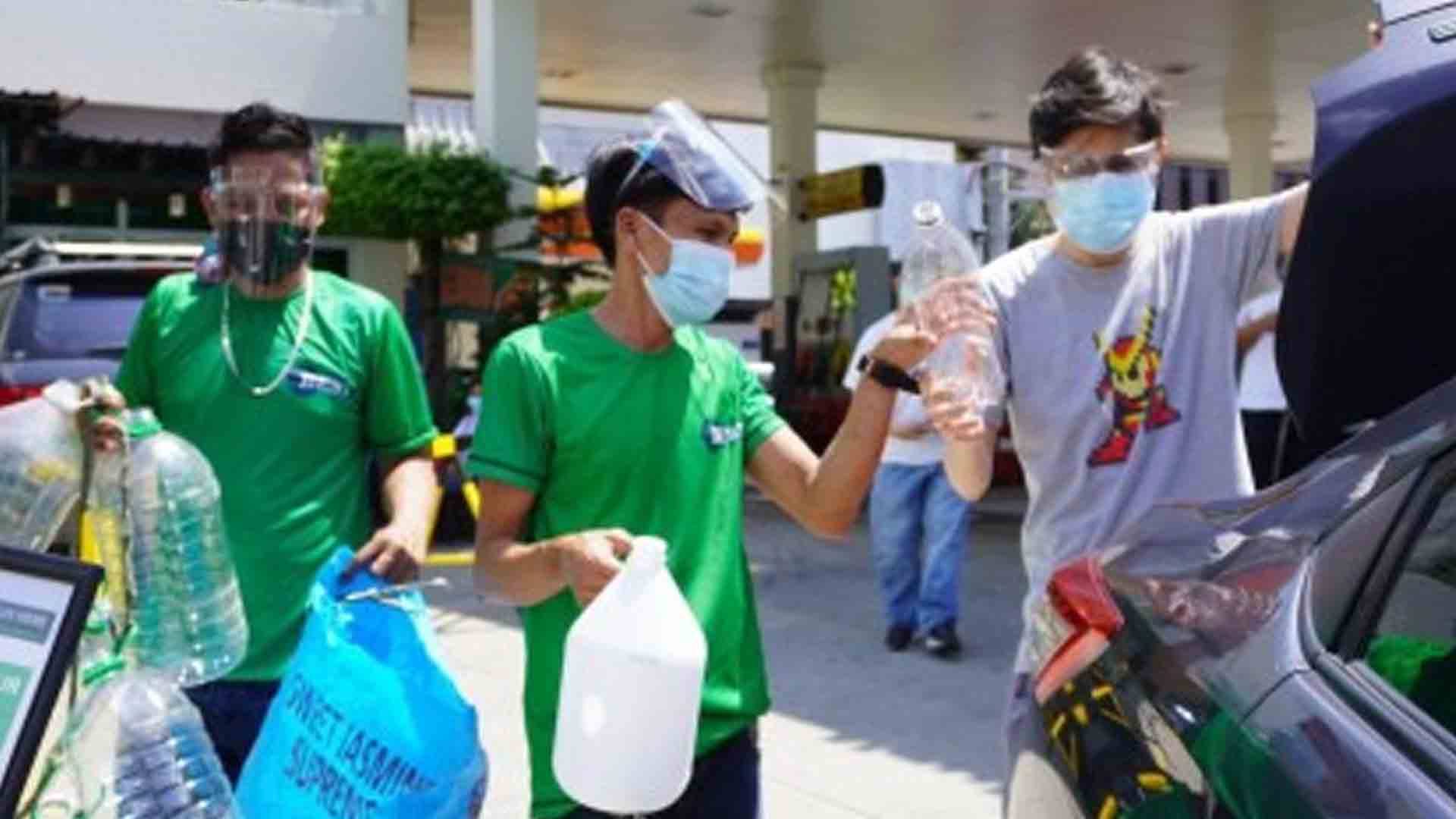Quezon City residents on Wednesday welcomed the city’s point system program on waste management, saying this will aid efforts to save the environment while helping them cushion the economic impact of the coronavirus pandemic.
“Magandang proyekto ito dahil nakatulong ka na sa mga mamamayan at makakaiwas pa sa mga pakalat kalat na basura sa kalsada, tama ang kasabihan na me pera sa basura (This program will help the people and in cleaning the streets. This is true to the saying that there is money in garbage),” netizen Dema Ruby said of the city’s “Trash to Cashback” program on the social media page of the city government.
Under the program, residents can trade their recyclable materials to “environmental points” (EPs) which can be exchanged for basic goods such as rice, eggs, vegetables, and other essential grocery items.
“Kapag lahat ng barangay ganito ang gagawin for sure next year di na problema ang plastik na basura (If all barangays will implement this, for sure next year, plastic wastes will no longer be a problem),” netizen Armida Suzuki said.
The program was first launched in Quezon City Hall in March and is part of the city’s campaign to reduce plastic wastes that normally ends up clogging waterways.
“Maraming tao ang magugustuhan ang ganitong programa dahil ang kanilang basura tulad ng plastic ay maaaring maging pera (Many people will like this kind of program because their wastes like plastics can be turned into cash),” netizen Renz Antonio said.
Mayor Joy Belmonte said the program is set to be rolled out in different communities in QC next month.
“Together with our partner, Basic Environmental Systems and Technologies (BEST), we are bringing this project down to our barangays to make it more accessible and convenient to our residents who are willing to trade their recyclables into groceries. Hopefully, we can launch it by June in celebration of Environment Month,” she said in a statement.
The first step of the program is on the barangay level where officials will identify a drop-off point in their own community.
Residents may bring their recyclables like metal, papers, PET bottles, single-use plastics (SUP) such as shampoo sachets, coffee packs, and even online shopping plastic packages.
At the drop-off points, residents may choose whether to keep the EPs for themselves or if not, they have the option to donate them to beneficiaries from various sectors who are identified by the village officials.
The barangay’s chosen beneficiaries will then receive groceries or “incentive bags” from BEST in exchange for the accumulated EPs donated by the residents, said Andrea Villaroman, head of the city’s Environmental Protection and Waste Management Department (EPWMD).
“The incentive bag will include rice, vegetables from our urban farms, and other necessities. We will ensure that these food packages and groceries will be given and distributed to those in need, especially the most vulnerable sectors of the city,” Villaroman said.
Eventually, the city government plans to introduce the program to different establishments such as malls, hotels, and restaurants where BEST will directly pick up the collected recyclables from their drop-off points.
The accumulated EPs will be converted into a bXTRA cashback that may be used to redeem grocery items from the mobile redemption store or bXTRA outlet and bXTRA food deliveries.
QC residents can register to the bXTRA Website through bXTRA.com.ph to start earning EPs.
Aside from the existing ban on the use of plastic bags, the use of disposable materials for dine-in transactions will be prohibited in the city starting July 1. (PNA)




















